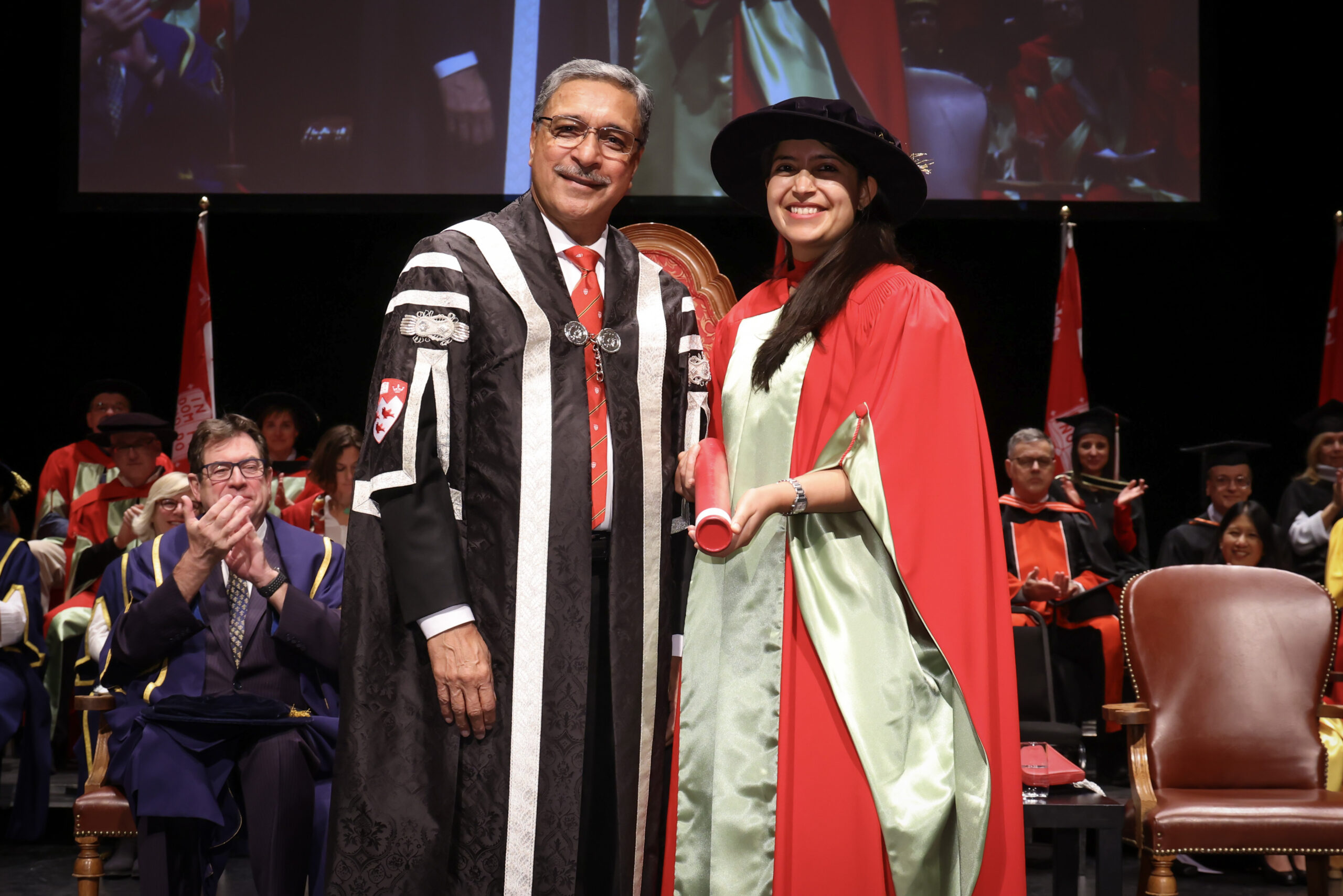
It’s exactly where Pallavi Sirjoosingh wants to be.
The young faculty lecturer, who just won a Principal’s Prize for Teaching Excellence in the Faculty Lecturer category, is passionate about teaching, more interested in sharing knowledge with fresh-faced students than pursuing research into her own interests, which happen to be timely in a pandemic era: the study of RNA enzymes, the building blocks of COVID-19 vaccines.
“I really enjoyed my time teaching,” she says of her experience as a teaching assistant pursuing her PhD at Penn State University. “I was better at teaching, and I enjoyed my time outside the lab more than I did inside the lab.”
Feeding off the excitement
Teaching introductory chemistry, some of the biggest classes at McGill, she’s in her element.
“What I really, really like is that, apart from the content or whatever I’m going to teach, the students are so excited, it’s the first day of Fall and there’s just this buzz in the room,” Sirjoosingh says. “And I don’t know how to not be excited when I’m in that classroom. They are so excited to learn.
“I remember how I felt when I was an undergrad in my first year and just starting out and feeling all this excitement about learning, about being in a new place and about all these new avenues … I really enjoy that aspect of teaching, and that keeps me motivated.”
The content of introductory chemistry doesn’t really change. This is the foundational stuff, the basic chemistry anyone who wants to pursue more esoteric research later has to absorb first. Does teaching the same material over and over again get stale after a while?
Not so, Sirjoosingh says. “Every time I go into a class, and this happens every single semester, there will be questions I’ve never been asked before. And it’s so good. It’s like something new that I’ll think of, or a student will bring up something that is slightly outside the course, but related, but I’ve never made that connection before, and now I can. I really enjoy that, because it’s different every single time, even though I’m teaching the same content.”
Critical thinking
Sirjoosingh developed her love for chemistry in high school in India, inspired by a teacher “who related what we were doing in class to the world around us,” she says.
Has skepticism about science evident in certain corners of the internet and in the rise of right-wing populism found its way into her lecture halls?
“As a scientist myself, I think my responsibility is to be well-informed. There are things that I know well, but there are also things I don’t know so well, so I’m very open to being challenged, being questioned, and also admitting that there are things I’m not an expert on.
“In the teaching context, what I really find important is when I go into a class and I speak to these students, it’s important for me to show them how important critical thinking is. And critical thinking does not mean you go in and question everything that is there. That is not the idea,” she says. “But if somebody shows you a figure, or a plot, you can look at it and take away what the point of that is and be able to question what you’re being shown.
“As a teacher, my responsibility is to develop that skill in students,” she says. Chemistry, after all, is one of those subjects where truths have been tested through time, so it makes it tough to challenge the fundamentals.
“You can’t just come in and take things out of context and be, like, ‘oh this doesn’t work.’ You have to look at the bigger picture and you should be able to look at the bigger picture.”
She has made the transition from growing up in a small town in northern India to living big, multicultural Montreal, and loving it, especially, she confesses, the rich array of food at hand.
Here, her face lights up again. Because if there’s one course she would like to add to the curriculum, that’s what it would be.
“I would love to teach the chemistry of baking or cooking, the science of cooking.”
